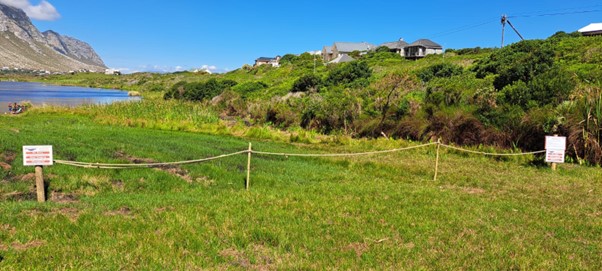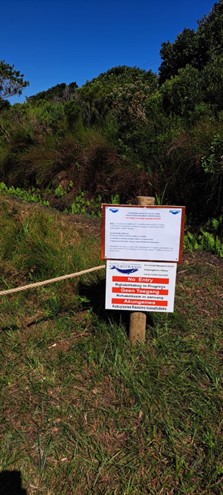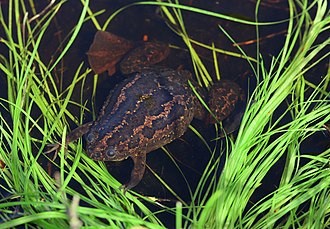Overstrand Municipality’s Environmental Management Services is very excited about the discovery of the Cape Platanna (Xeonopus gilli) in the drainage channel adjacent to the Malkopsvlei/Bass Lake recreational lawn area in Betty’s Bay.
The existence of the endangered Cape Platanna was confirmed by restoration ecologist and herpetologist from Cape Nature, Dr Andrew Turner during December 2023. The Cape Platanna is classified as endangered due to their very small distribution, only occurring in five grid locations in the Western Cape.
This species is extremely sensitive to habitat change and their larvae are very sensitive to alterations in water quality.
Other pressures that threaten the species include the species hybridizing with the invasive African Clawed Frog (Xenopus laevis), increased water pH from agricultural runoff (fertilisers) and alien invasive plants that are known to alter the pH in water bodies.
To protect and save the quality habitat of this endangered species, the Overstrand Municipality and the Betty’s Bay Ratepayers Association are working together to rehabilitate the channel.
Unfortunately, there has been a third incident in two months where the weirs have been deliberately dismantled. This time, four of the five weirs were broken, rapidly draining the system and putting the Platannas’ habitat at risk.
The public is requested to respect the rehabilitation process and not to enter the area that is signposted for rehabilitation.
It takes an extraordinary amount of time to rebuild, maintain and monitor these weirs and the actions to undo this work, are regarded as being malicious because the species is legally protected by Nature Conservation Ordinance 19 of 1974.
The Bass Lake area is classified as a floodplain wetland and is therefore protected under the National Water Act (Act 36 of 1998). The Municipality therefore will report members of the public who transgress the regulations.
Overstrand Municipality, along with the assistance of local conservation organisations and residents, will be working together to give the Cape Platanna populations the opportunity to grow and have their vital habitats restored and protected for the benefit of future generations.




